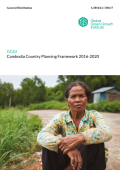
This Country Planning Framework (CPF) is a high-level document guiding the Global Green Growth Institute's (GGGI) joint program with the Royal Government of Cambodia (RGC).
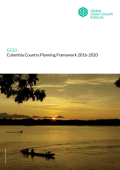
This Country Planning Framework (CPF) sets the strategic direction for the Global Green Growth Institute (GGGI) in Colombia over the period 2016-2020.

This collection aims to provide a reference for policy makers and practitioners working to scale up bioenergy in rural areas of sub-Saharan Africa. Energy, agriculture, forestry, environment, finance and business experts all seek for solutions to provide energy and also enhance food security, social welfare and environmental sustainability.
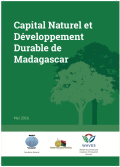
This case study, Natural Capital and Sustainable Development in Madagascar , summarizes the work done in the framework of the implementation of macroeconomic indicators to inform public policies on realistic and effective indicators. Madagascar is one of the five pilot countries engaged since 2011 in the Global Partnership for Wealth Accounting and the Valuation of Ecosystem Services - WAVES.

The Role of Sustainability-oriented Social Enterprises in Boosting Green Livelihoods and Business Opportunities in Rural Contexts reviews the cases of capacity building and knowledge improvement of rural livelihood in rural communities related to sustainable and low-carbon solutions. The reviewed sub-cases show that implementation of local integrated systems of solutions addressing energy, water, shelter and other livelihood needs at community level require paying major attention to enabling social processes and organisational capacities rather than only focusing on a given technological innovation.
This case study takes a look at how Bhutan is taking steps towards putting the Paris Agreement into practice and embarking on a low-carbon, climate-resilient pathway that is adapted to its unique circumstances, and compares Bhutan's efforts with those of other nearby countries.
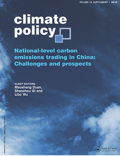
Utilising the United Republic of Tanzania as a case study, this article examines how climate change is addressed in policy, how it is being mainstreamed into water, energy and agriculture sector policies and the extent to which cross-sectoral linkages enable coordinated action.
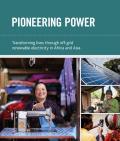
This report, Pioneering Power: Transforming lives through off-grid renewable energy in Africa and Asia, examines the challenge of bringing power to over one billion people who live without electricity, mostly in remote, rural areas in sub-Saharan Africa and South Asia.
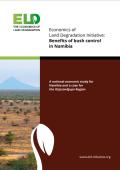
The Economics of Land Degradation (ELD) case study of Namibian highlights the economic and environmental benefits of bush control on national and local level.
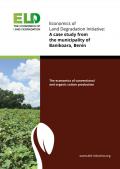
The case study, The Economics of Conventional and Organic Cotton Production in Benin presents an analysis of the economics of pesticides use and resulting occupational health issues in cotton production.
